Child Marriage & Menstruation – A link?
On 28th May, we celebrated Menstrual Hygiene Day to promote menstrual hygiene in Pakistan with our partners and collaborators. Along with various speakers, we also had a panel discussion on ‘Menstruation and Child Marriage’ that was moderated by Ms. Shaiwana Pathan, Communications & Content Consultant featuring two panelists from Rural Support Programmes namely Ms. Uroosa Khatti, Manager Liaison and Coordination in SRSO and Ms. Nasreen Khan, District Manager from TRDP. Both panelists have extensive research experience in mitigating child marriages, as well as advocating for its suppression in rural areas.
Stereotypes related to Menstruation & marriage in rural areas
Uroosa Khatti revealed that her team faced a lot of resistance when they started working on the subject of menstruation as mothers in rural areas did not wish to disclose information about menstruation and its process to their daughters until they reached puberty. It was also noticed that rural women couldn’t dry out their sanitary clothes in open places because it was against the village norms.
Nasreen Khan added that the mothers in rural areas are not educated enough to share menstrual hygiene knowledge with their daughters. In rural areas, girls are supposed to leave school after their menarche as they are meant to get married after the initial months of menstruation.
Lifelong consequences of child marriages - Girls most at risk
According to Uroosa, girls are not physically fit to conceive children until the age of 21. Child marriages cause early pregnancies and there are cases in rural areas where girls lost their lives during complicated pregnancies and blood loss. Nasreen Khan shared some case studies from rural communities and mentioned the causes of early child marriages including the honor of family, respect, and reducing financial burden. In consequence, she shared that these early marriages could result in, no birth-spacing, health problems, and insufficient health and awareness facilities could aggravate the conditions.
Changing mindsets related to the link of Menstruation and Marriage – Who can play the role?
People don't talk about menstruation, but if women in a community get engaged, they may become a powerful force to halt such marriages. Community leaders and Resource Persons, according to both panelists, could be the advocates against such marriages and help to change people's mindsets about menstruation and marriage. Nasreen also presented a case study of a Community leader who stepped out to opposed child marriage in her community. According to them, it’s a long journey to go as changing mindsets is not easy but we could strive to bring change through time.
.png)
.png)
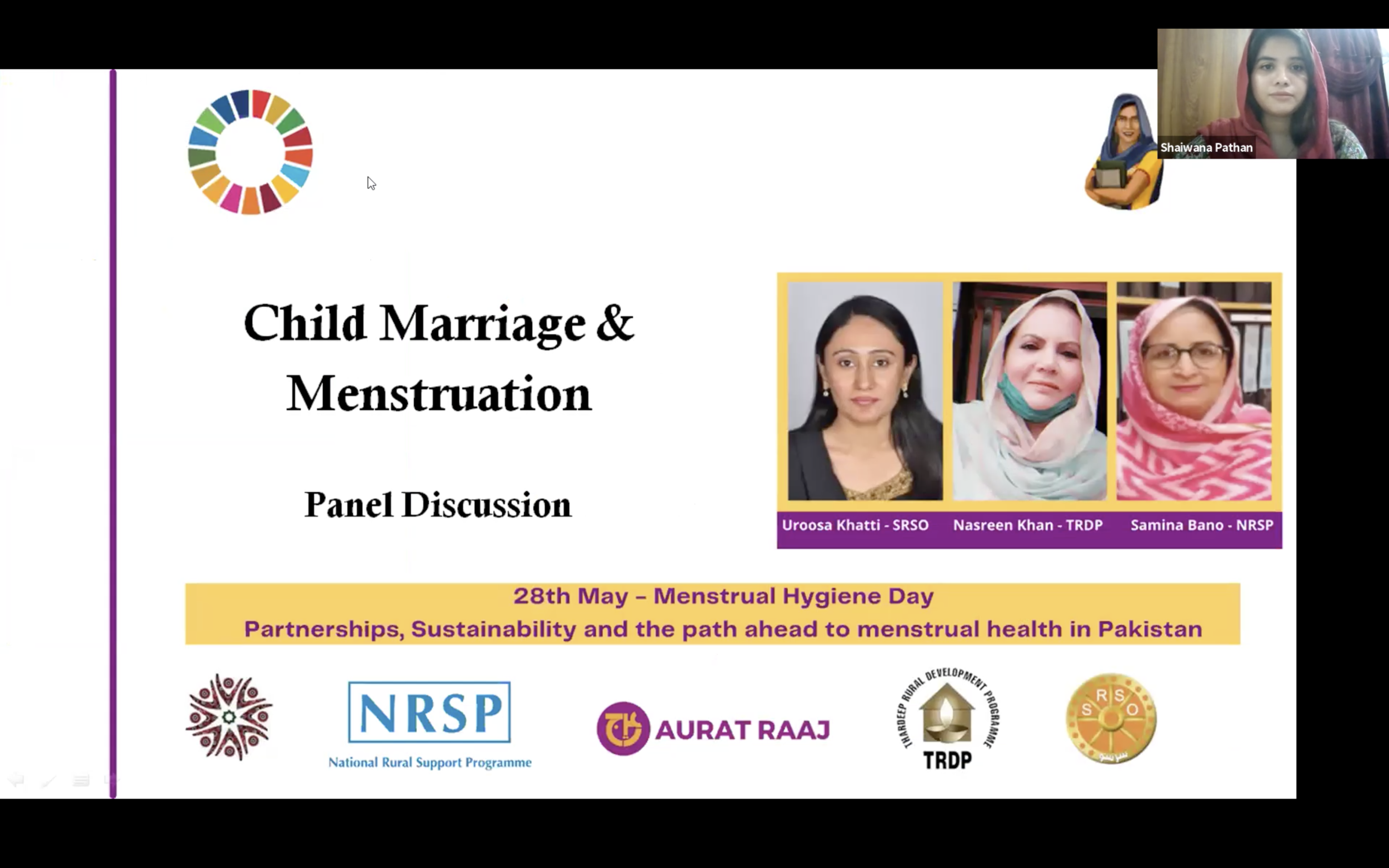
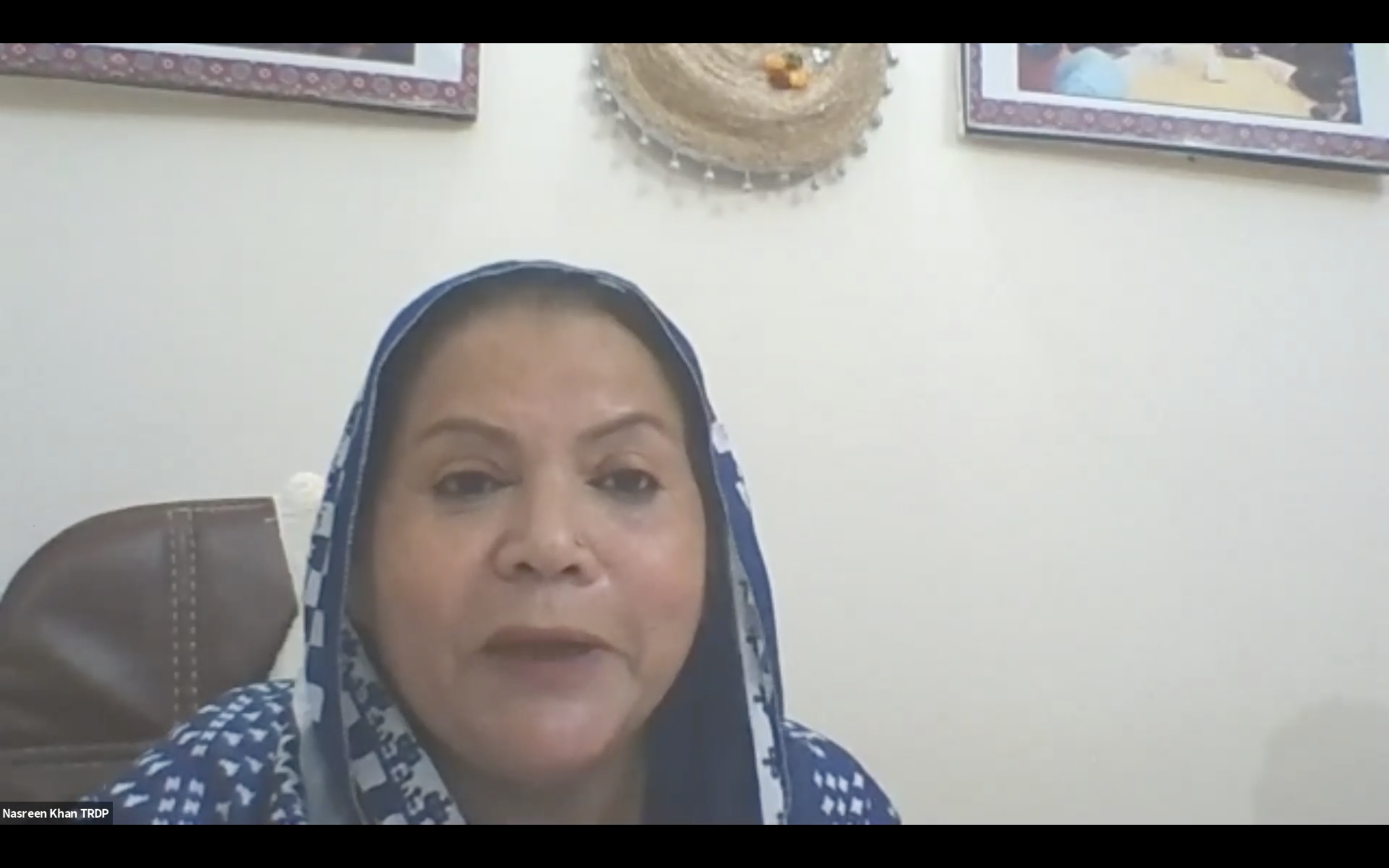
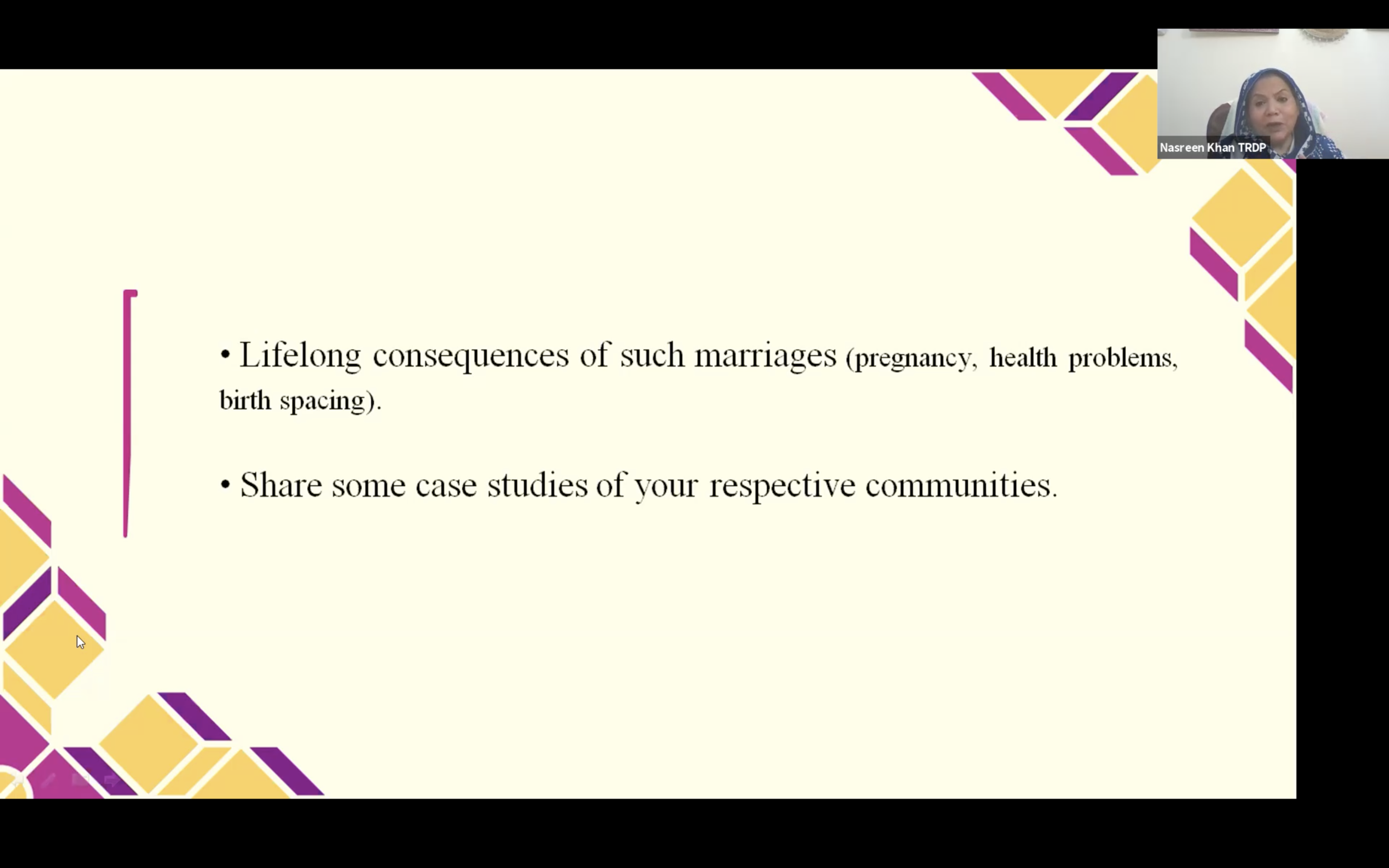
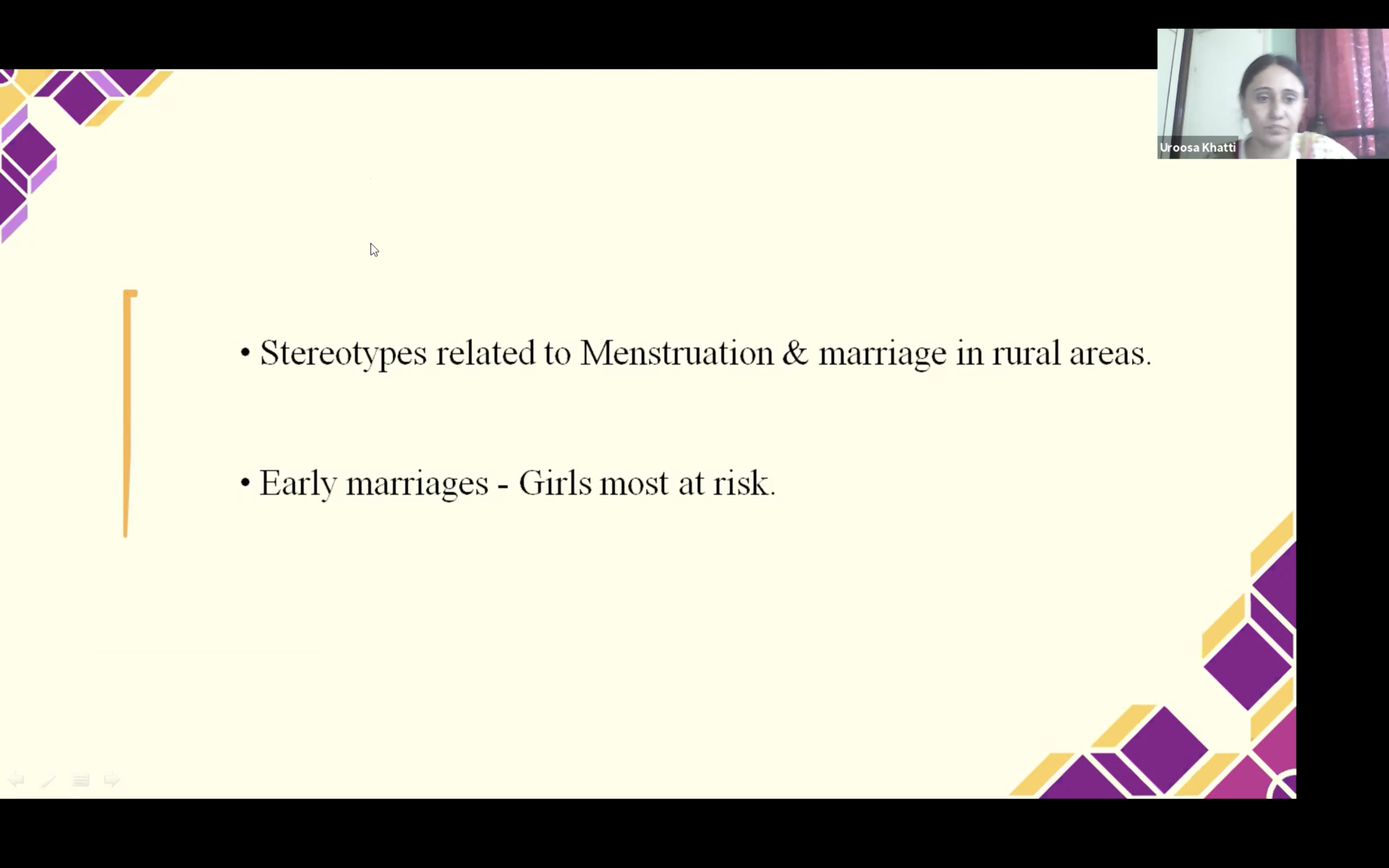
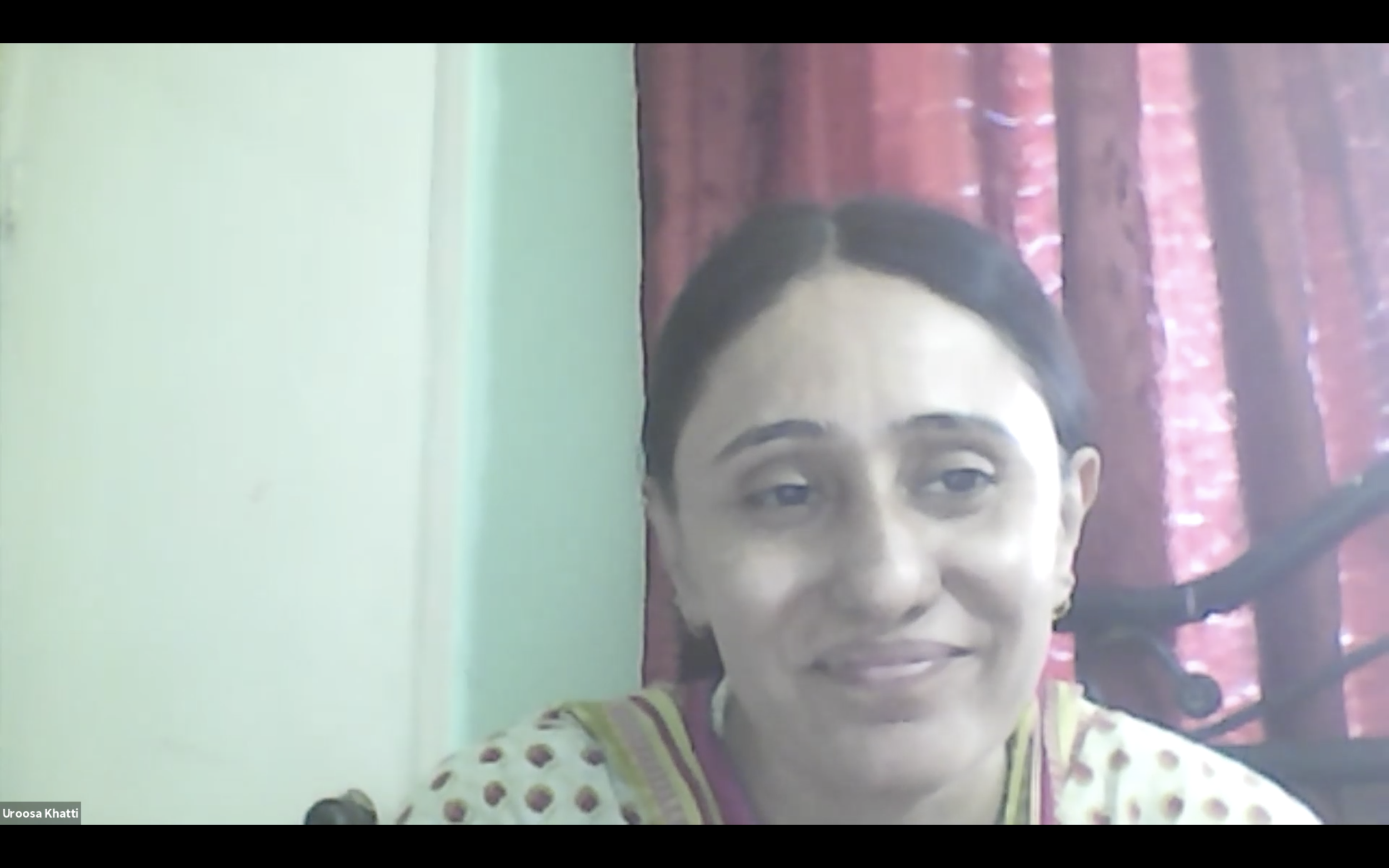
.jpg)